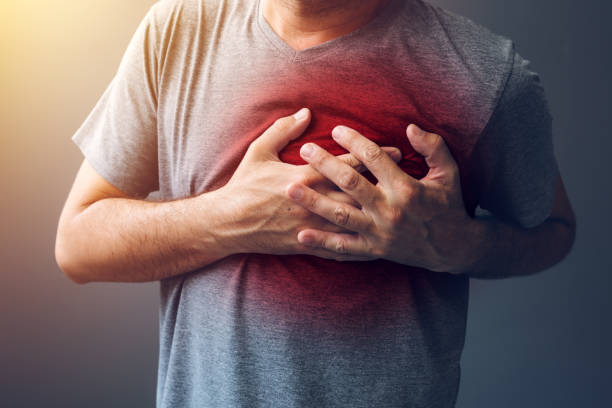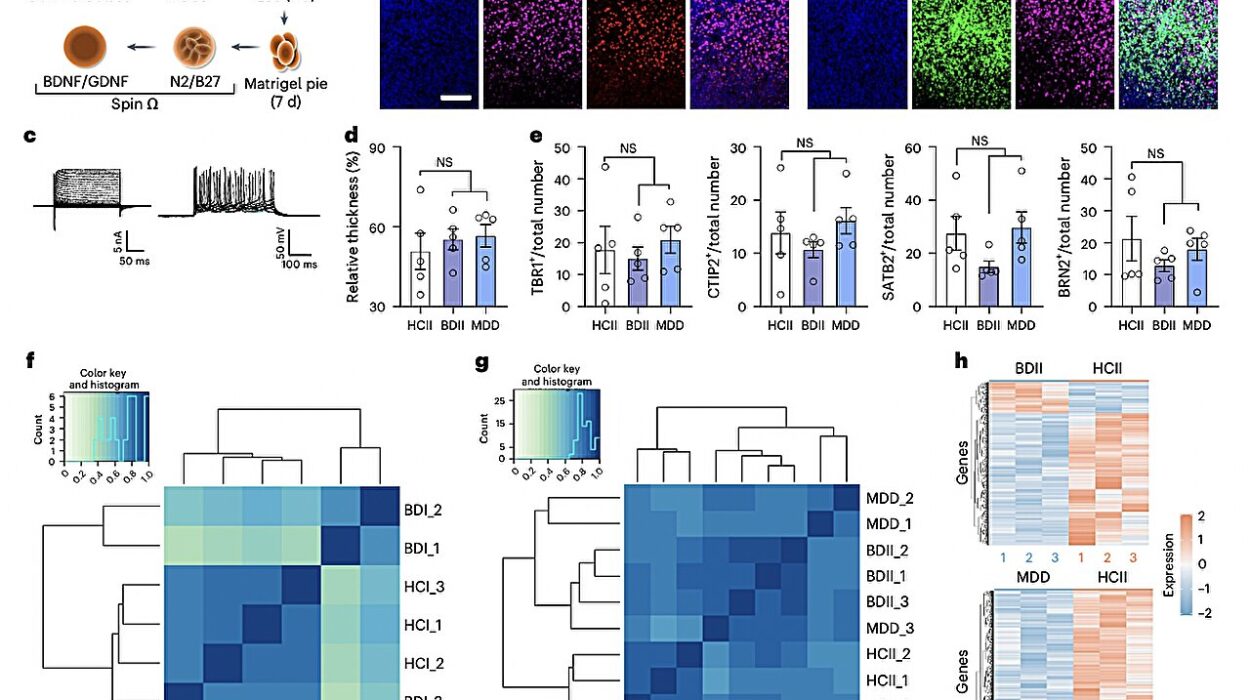The heart is the tireless engine that sustains human life, beating more than 100,000 times each day, moving blood, oxygen, and nutrients to every part of the body. For most men, it works silently, faithfully, and without complaint. But sometimes, deep inside the chest, trouble begins to brew long before it makes itself obvious. The arteries narrow, the blood pressure rises, and the rhythm falters. The tragedy is that heart problems often whisper before they roar, sending out faint signals that too many ignore or dismiss as unimportant.
Heart disease remains the leading cause of death among men worldwide, claiming millions of lives every year. Yet many of those deaths could be prevented if the early warning signs were recognized and acted upon. The difficulty lies in the fact that men often mistake the first symptoms for fatigue, stress, or even indigestion. By the time a crisis such as a heart attack strikes, valuable opportunities for prevention may have already been lost.
Understanding these early warning signs is not only a matter of medical knowledge—it is a matter of survival. For men, learning to listen to the body and interpret its subtle messages can mean the difference between a healthy life and a sudden tragedy.
The Biology of Heart Disease in Men
Before exploring the signs, it is important to understand what underlies them. Heart problems in men are most often linked to coronary artery disease, in which fatty deposits—called plaques—build up inside the arteries that supply the heart with blood. Over time, this process narrows the vessels, restricting blood flow. Sometimes the plaque ruptures, causing a clot that completely blocks circulation to part of the heart muscle, resulting in a heart attack.
Other forms of heart disease involve arrhythmias (abnormal rhythms), heart valve disorders, cardiomyopathy (weakening of the heart muscle), or heart failure. Regardless of the form, the body typically tries to signal distress before catastrophic failure occurs. These signals, however, may not always appear where men expect them.
The male body responds to cardiovascular stress in unique ways. For example, men are more likely than women to experience the “classic” chest pain associated with heart disease, but they are also prone to ignoring or rationalizing symptoms, attributing them to overexertion, stress, or aging. This reluctance to seek help contributes to higher mortality rates among men.
Chest Discomfort: The Most Recognizable Signal
Perhaps the most well-known sign of heart trouble is chest discomfort. This does not always manifest as a dramatic, crushing pain as often portrayed in movies. Instead, men may experience a pressure, heaviness, or tightness in the chest that comes and goes, often triggered by physical exertion or emotional stress.
This sensation—known as angina—is caused by insufficient blood flow to the heart muscle. Some men describe it as if “an elephant is sitting on the chest,” while others feel only a mild burning that can be mistaken for heartburn. The important detail is that chest discomfort associated with heart disease tends to worsen with activity and improve with rest.
Ignoring chest discomfort is one of the most dangerous mistakes a man can make. Even if it subsides quickly, it should not be dismissed. These episodes are often the body’s way of warning that the heart is struggling and that a serious event may be imminent.
Shortness of Breath: The Struggle for Air
Another subtle yet critical sign is unexplained shortness of breath. When the heart cannot pump efficiently, fluid can accumulate in the lungs, making it harder to breathe. Men may notice that they become winded while climbing stairs or carrying groceries, even if they were able to perform such tasks easily in the past.
Sometimes, shortness of breath occurs at rest or during the night, waking a man with the sensation of suffocation. This is not just a symptom of aging or being out of shape—it is often a sign that the heart is under strain and unable to meet the body’s demands.
Shortness of breath associated with heart problems often develops gradually, which makes it easy to ignore. But when breathing difficulties persist or worsen, they should always be investigated.
Fatigue: When Energy Runs Dry
Many men dismiss fatigue as the inevitable result of busy lives filled with work and family responsibilities. While tiredness is indeed common, extreme or persistent fatigue can be an early marker of heart disease. When the heart struggles to pump effectively, less oxygen reaches the muscles and brain, leaving a man feeling drained even after adequate rest.
This type of fatigue is different from the tiredness caused by long hours or poor sleep. It tends to be unrelenting and disproportionate to activity levels. A man who previously enjoyed playing sports or exercising may suddenly find himself exhausted after minimal exertion.
Because fatigue can be caused by numerous conditions—including stress, depression, or anemia—it is often overlooked as a cardiac symptom. Yet, when fatigue is accompanied by other warning signs such as shortness of breath or chest discomfort, it becomes a powerful indicator that something is wrong with the heart.
Dizziness and Lightheadedness: Signals from the Brain
The brain is highly sensitive to changes in blood flow. When the heart cannot maintain adequate circulation, men may experience dizziness, lightheadedness, or even fainting spells. These symptoms may occur during exertion or suddenly without warning.
Arrhythmias—irregular heartbeats—are a common cause of such episodes. If the heart beats too fast, too slow, or erratically, blood pressure can drop, depriving the brain of oxygen. Although dizziness may seem trivial, when it occurs repeatedly or in conjunction with palpitations, it could signal a potentially life-threatening heart rhythm problem.
Pain Beyond the Chest: Unexpected Locations
One of the reasons heart disease can be so deceptive is that its pain does not always remain in the chest. Men may feel discomfort radiating into the shoulders, arms, back, neck, or jaw. The left arm is particularly notorious for reflecting cardiac pain, but symptoms can also spread to both arms or the upper back.
Sometimes the pain is dull, while at other times it is sharp or aching. Because it can resemble musculoskeletal pain from exercise or poor posture, men often dismiss it as harmless. However, pain that arises with exertion and improves with rest should raise concern.
Jaw or neck pain, in particular, may seem completely unrelated to the heart, yet it can be a clear warning of coronary artery disease. These atypical symptoms demonstrate the importance of looking at the body holistically rather than in isolated parts.
Sweating: The Body’s Alarm System
Profuse, unexplained sweating—particularly cold sweats—can also signal heart trouble. Unlike the normal perspiration that occurs during exercise or heat, cardiac-related sweating often appears suddenly and is not linked to temperature or activity.
This occurs because when the heart is under severe strain, the nervous system triggers a “fight or flight” response, flooding the body with stress hormones. Sweating is one way the body reacts to this internal emergency.
Men experiencing cold sweats in combination with chest discomfort, nausea, or shortness of breath should treat it as a red flag requiring immediate medical evaluation.
Nausea and Indigestion: Overlapping Symptoms
Heart problems sometimes masquerade as gastrointestinal issues. Men may feel nauseated, experience indigestion, or even vomit during the early stages of a heart attack. This happens because the heart and digestive organs share nerve pathways, causing cardiac pain to be interpreted as stomach distress.
This overlap makes it easy to mistake a serious warning sign for a minor stomach upset. A man might take antacids and wait for relief, unaware that his heart is sending out a cry for help. Any persistent indigestion or nausea, especially when combined with other symptoms, should not be ignored.
Sleep Disturbances: Nighttime Warnings
Sleep is when the body restores itself, but for men with developing heart problems, nighttime can bring alarming symptoms. Waking up short of breath, experiencing chest pain while lying down, or feeling the need to prop oneself up with pillows to breathe comfortably are often signs of heart failure.
Sleep apnea—pauses in breathing during sleep—is also strongly linked to heart disease. Men with loud snoring, restless sleep, or daytime sleepiness should be evaluated, as untreated sleep apnea significantly increases the risk of hypertension, arrhythmias, and heart attacks.
Emotional and Psychological Signs
The mind and heart are deeply connected, both symbolically and physiologically. Emotional changes can be early indicators of heart problems in men. Anxiety, irritability, or feelings of impending doom sometimes accompany cardiac distress. Depression is also common in men with heart disease, both as a risk factor and as a consequence.
While emotional symptoms alone do not confirm heart problems, when they appear alongside physical signs, they add another dimension to the warning system.
Why Men Ignore the Signs
Despite these clear signals, many men delay seeking help. Cultural expectations of masculinity often encourage stoicism, discouraging men from admitting weakness or vulnerability. Work pressures, family responsibilities, and the belief that “it’s just stress” contribute to denial.
This reluctance can be deadly. Studies show that men are more likely than women to delay going to the hospital during a heart attack, reducing their chances of survival. Changing this mindset requires education, awareness, and a cultural shift that values health over pride.
The Role of Risk Factors
Understanding early warning signs is inseparable from recognizing the risk factors that make them more significant. Men with high blood pressure, high cholesterol, diabetes, obesity, or a family history of heart disease should be especially alert to symptoms. Smoking, excessive alcohol use, poor diet, and sedentary lifestyles also magnify risks.
These risk factors often develop silently, just like the disease itself. Regular check-ups, blood tests, and screenings are essential tools for detecting hidden dangers before they manifest as symptoms.
Prevention: A Lifelong Investment
The power of prevention cannot be overstated. Many heart problems are preventable through lifestyle modifications: eating a balanced diet, exercising regularly, managing stress, avoiding tobacco, and moderating alcohol. Even modest improvements in lifestyle can significantly reduce risk.
For men already experiencing early warning signs, prevention takes on an even more urgent role. Recognizing symptoms early, seeking medical advice promptly, and adhering to treatment plans can prevent minor issues from escalating into life-threatening crises.
When to Seek Immediate Help
Some signs demand urgent attention. Sudden, severe chest pain; unexplained shortness of breath; dizziness with fainting; or profuse cold sweats accompanied by nausea should be treated as emergencies. Time is critical during heart events. Every minute of delay increases the risk of permanent damage or death.
Men should never hesitate to call emergency services if they suspect a heart attack. It is far better to be evaluated and reassured than to ignore symptoms until it is too late.
The Future of Cardiac Care
Modern medicine is rapidly advancing in detecting heart problems earlier than ever before. High-tech imaging, genetic testing, and wearable monitors allow doctors to track heart function continuously. Artificial intelligence can analyze subtle patterns in data that humans might miss, predicting risks long before symptoms appear.
Yet, technology cannot replace personal awareness. The future of heart health lies not only in machines but in education, lifestyle change, and the willingness of men to take their health seriously.
Health as Responsibility and Empowerment
Recognizing the early warning signs of heart problems is not about living in fear—it is about empowerment. The body often whispers before it screams, offering men a chance to act, to change, and to protect their lives and the lives of those they love.
Health is not just the absence of disease but the presence of vitality, resilience, and connection. For men, listening to the heart—literally and figuratively—may be the most important step toward a longer, fuller, and more meaningful life.






